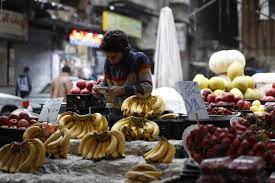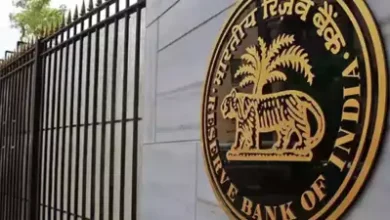The Syrian president doubles public sector wages while the value of the national currency declines
Syria’s president raised public sector salaries and pensions early on Wednesday as the nation’s currency continued to plunge, hitting a new low for the year.
Just before midnight on Tuesday, President Bashar Assad announced the two decrees as the value of the Syrian pound versus the US dollar hit a record low since the start of 2023, falling from 7,000 to 15,000 pounds to the dollar. The dollar was worth 47 pounds at the beginning of the war in 2011.

Damascus has been reorganizing its scheme of subsidies for bread, heating fuel, and gasoline for more than a year.
Syrian Prime Minister Hussein Arnous said the decision to reduce gasoline subsidies will enable the program to target the poorest households more efficiently while also lowering the deficit incurred by the Syrian state at the time of the restructuring’s announcement in February of last year.
Despite not affecting wheat or bread subsidies, the decision has provoked unusual demonstrations throughout the nation as households struggle to deal with the country’s increasing inflation.
Shortly following Assad’s edict, Syria increased gasoline prices on Wednesday, further eliminating state subsidies.
In a speech to Syria’s parliament late last month, Arnous warned that funding government expenditures via debt and borrowing from the central bank is not sustainable. “The national economy is in a clear state of instability, most notably rapid rise of the currency exchange rate,” he said.
Syria’s latest pay increase was in December 2021, when President Assad increased government sector wages by 30%.
Sam Heller, a fellow at the New York-based think tank Century International, told The Associated Press that although the boost in pay could provide Syrians with an instant sense of comfort, it would only be temporary at most given how bad the country’s economic position is already become.
“It seems likely to fuel inflation and thus worsen the continued depreciation of Syria’s currency,” the author stated.
Hours after the edict was published, according to the Syrian Observatory for Human Rights, an opposition-affiliated war monitoring organization headquartered in Britain, gasoline and product prices rose as public unhappiness over the severe economic condition worsened.
Since 2019, Syria’s currency has been declining, which has been made worse by Covid-19 and the economic collapse of neighboring Lebanon. However, the market’s liquidity has improved as a result of the most recent wage boost and a sizable government payment to this summer’s wheat crop.
“This (wage) increase is all but wiped out following the increases in fuel prices and recent depreciation in the Syrian pound,” Karam Shaar, a nonresident senior scholar at Washington-based think tank the Newlines Institute, told the Associated Press. In a month or two, “(it) will fully feed into local (market) prices.”
The 13-year-old civil war in Syria that started as an uprising and was guided by the West to become sanctions have destroyed the nation’s economy.
In particular in the destroyed city of Aleppo, a fatal 7.8 magnitude earthquake in February further destroyed its already damaged housing, water, and electrical systems. According to experts, the situation has become worse due to the Syrian government’s widespread corruption and poor handling of public finances.
According to UN estimates, 90% of Syrians who reside in government-controlled regions are considered to be impoverished.
The UN estimates that 12 million people, or more than half the population, struggle to put food on the table.
A northwest enclave still controlled by the resistance has a similar figure.
Relations with Damascus have recently been repaired by Arab states who earlier supported the overthrow of Assad.
After being suspended from the Arab League for more than ten years due to its suppression of demonstrators, Syria was welcomed back in May.
Although there have been preliminary discussions on a political solution that would result in funding and assistance from oil-rich Gulf monarchies, Western-led sanctions continue to be a significant barrier to any agreements that might be reached.







